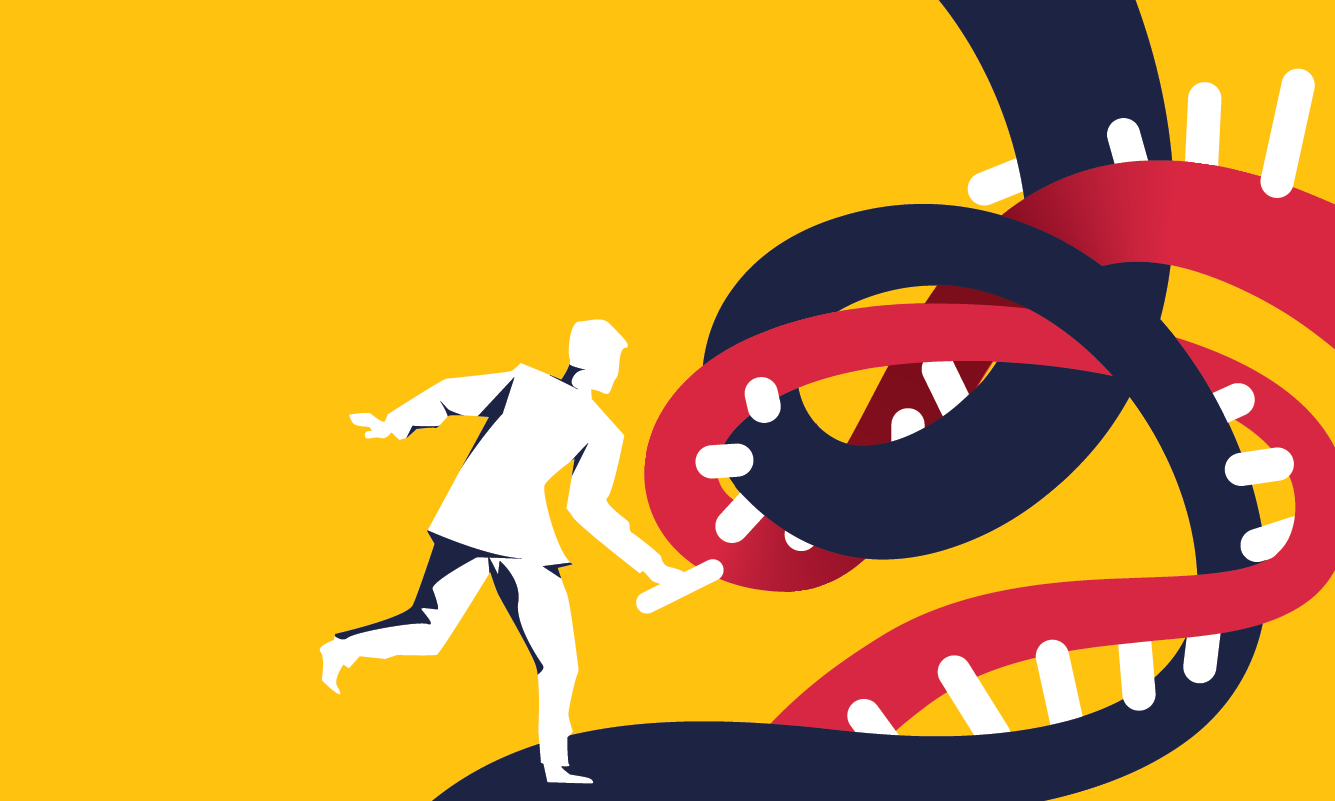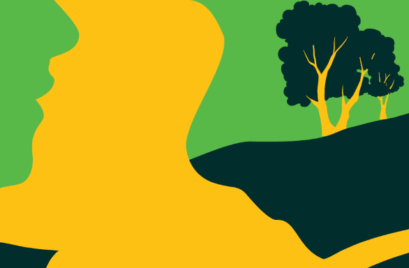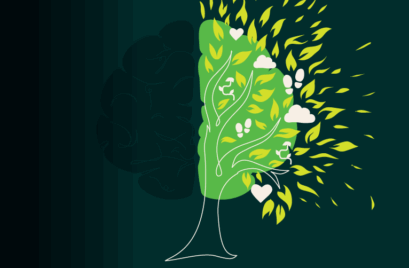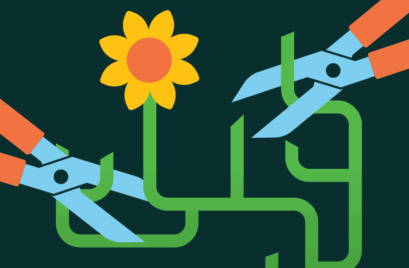
By my actions teach my mind. ~ William Shakespeare
Remember when you were a child, and the world was not something just for your mind to understand? It was a place for your hands to grasp, your nose to inhale, your eyes to embrace, your ears to vibrate to, and your tongue to savour?
Learning through our senses is built-in from birth. However, as our culture and social structures primarily value mental intelligence, and to a lesser extent, emotional intelligence, many of us grow up highly removed from the intelligence of the body. We become more verbal and lose touch with the physical element and the ability to learn by using bodily skills that were once innate to us.
This means that in most cases, we only have a conceptual understanding of our filtered reality, lacking access to the felt sense of emotions and the beliefs held in our bodies from previous experiences. Often our intellectual mind will be limited to a more reductive or survival-oriented view of life, without the input of our full body.
The lockdowns due to the global pandemic have only heightened this sense of misalignment. As we’ve been spending more time at home and sitting behind our screens, we’ve been moving less and, as a result, feeling even more disconnected from our physical expression and natural environments.
Your body as a tuning fork
Cognitive science is discovering that our bodies are a powerful social and emotional sense organ. When we connect more deeply with ourselves, we become aware of the automatic patterns moving through neural pathways in our brains and bodies. This allows us to be more consciously embodied and develop the capacity to make new choices that override the instinctive reactions (fight/flight/freeze) of our reptilian and mammalian brains.
Somatic intelligence means understanding the unconscious messages our body cues are communicating, and having access to it provides us with an untapped source of wisdom and deeper knowing that can help us navigate life more easily.
Your body as regulator
Your body can also be a powerful regulator. You may recall, for example, getting frustrated in a difficult conversation. Rather than allowing yourself to be emotionally triggered and saying words you might regret later, pay attention to what has your “blood boiling.” Notice the tightening in your jaws or your heart racing. Try to locate any tension or contraction in your muscles and observe your rate of breathing.
If your usual behaviour is to raise your voice or lash out when you get irritated and feel intense body sensations, see if you can “catch” yourself by noticing the warning signs in your body. “Name” what you are feeling and make a different choice that is more conducive to having a productive meeting, such as asking a clarifying question.
This process is what we call at Performance Frontiers “Catch, Call, Choose.” Knowing how to interrupt your own physical responses to stress and choosing to breathe more slowly, or counting your breath to regulate your nervous system, also has the added benefit of calming other people around you, as their “mirror neurons” catch the state you are in and tend to match it. Naming your feeling is a way to access the prefrontal cortex, the part of your brain responsible for rational thinking, and creates distance from your emotions.
Usually, when we are under threat, we experience what Daniel Goleman calls the “amygdala hijack”, and we become unable to think clearly. We then revert to automatic pilot and behave in ways shaped by our past, rather than enacting the future we want to see. Reconnecting to our bodies is a way to anchor ourselves in the present moment and empower ourselves to create the reality we prefer.
Your body as your personal Google
Your body can be your inner navigator. This is what executive coach, Steve Sisgold, calls “your personal Google.” The body can indeed be the gateway to our subconscious, helping us to understand that we don’t know what we don’t know. By shifting our attention to the physical responses in the body, our somatic intelligence helps us make decisions, solve problems, de-stress, and overcome limiting beliefs, so we can head in the right direction.
Listening to your body’s wisdom
“We should take care not to make the intellect our god. It has, of course, powerful muscles, but no personality. It cannot lead, it can only serve.” Albert Einstein
In our coaching and interactive workshops at Performance Frontiers, we deliberately apply multimodal body-mind activities and strategies to facilitate shifts in perspectives, perceptions, paradigms, behaviours, and actions.
We use innovative body-oriented approaches that incorporate mindfulness, visualisation, breathing exercises, and physical exercises, to help participants integrate their thinking processes with the wisdom of the felt experience.
We set experiences for our participants that make them realise that their whole body and immediate environment play a role in their thinking process. Internally, this could be things like their heart rate, their breathing patterns, or their levels of energy. Externally, it might be the conditions of the physical space they occupy, or their posture. They come to understand that these factors, combined with the sum of their prior experiences, affect each moment of perception.
We have also found that when we suspend judgment and open our minds and hearts, by slowing down our thoughts and getting into our senses and inner feelings, we can better perceive the experiences that our body is offering.
For example, suggest a moment of stillness in a meeting, to observe with curiosity what is happening when we tune into our senses and feel our body in the moment. As we take a moment to share this more “embodied” perspective, it slows down the conversation, and we create a whole system perspective rather than just their own. This adds depth and richness to the conversation.
When we open the door to what is present, we don’t know the way our bodies will move. But, as we learn by doing and reflect on our experience, surprising insights can arise
Facilitating embodied learning
Embodied learning occurs when there is a conscious intention to invite the body into the learning space, to tune into how the body sends and receives information. Here are a few ways we can start doing this:
- 3D mapping – creating 3D visualisations of current and emerging realities can shake up our “stuck in the moment” perspectives
- Working with clay – using clay to shape physical representations of our current challenges, brings tangible, new dimensions to our ways of thinking.
- Silent riddles – problem solving in silence places focus on our body language and our communication patterns
- Role playing – when acting out scenarios, we can centre on how we are feeling, acting and moving in the moment
- Novelty as a brain stimulant – physical exercises with an element of novelty bring energy that makes us more alert and challenges predictability
- Outdoors dialogue walk – exercise and closeness to nature are the subject of many well-being studies. Use this technique as a circuit breaker and to refresh mindsets
Using somatic intelligence and embodied learning has been a radical game changer that has transformed the way our clients relate to themselves, others, and the wider environment. It has allowed them to be better leaders, and influence others more powerfully, but also be healthier, happier, wiser and more creative human beings. Using the body as a source of power, intelligence and creativity helps them to regulate their minds, translate knowledge into action and tap into data they didn’t even know they had.
So, will you allow your body to become a tuning fork to guide you, not only in your work decisions but in all aspects of your life?
Need More Help?
Would you like your body to become your “secret weapon”? Performance Frontiers have a team of facilitators who can create a custom-designed interactive activity, to tap into embodied learning for leaders and teams. Speak to Lina today about how we can partner with you to serve, regenerate, and energise your teams.
While every effort has been made to provide valuable, useful information in this publication, this organisation and any related suppliers or associated companies accept no responsibility or any form of liability from reliance upon or use of its contents. Any suggestions should be considered carefully within your own particular circumstances, as they are intended as general information only.







